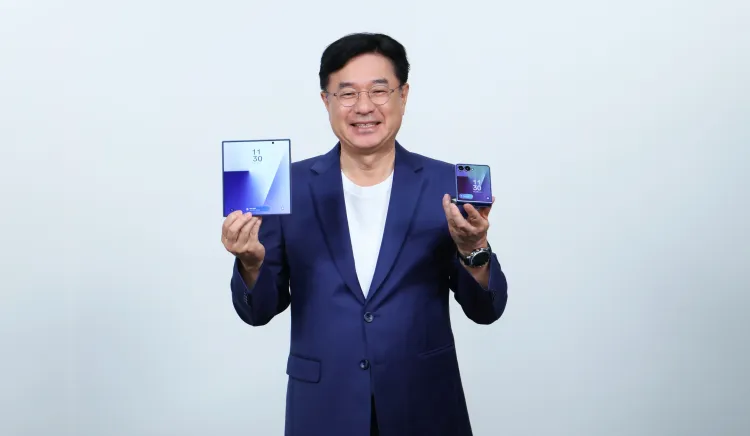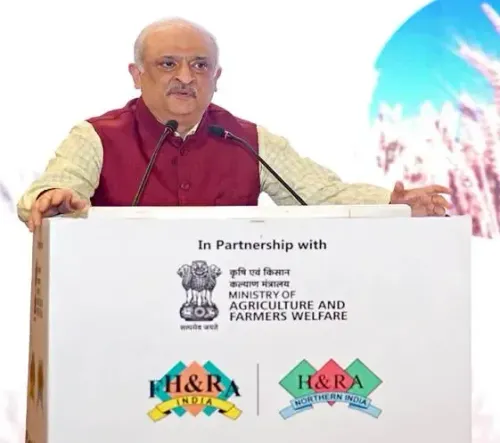How is India Contributing to Samsung's New Foldable Series?

Synopsis
Key Takeaways
- India's role in Samsung's foldable innovation is pivotal.
- Over 210,000 pre-orders in 48 hours highlight consumer interest.
- The phones are manufactured locally in Noida.
- New devices are the slimmest and lightest in the Galaxy Z series.
- AI integration is set to enhance user experience.
New Delhi, Aug 1 (NationPress) India is playing a pivotal role in the advancement of the latest foldable smartphone series, as highlighted by JB Park, President and CEO of Samsung Southwest Asia, on Friday.
He emphasized that the engineers at the Bengaluru R&D center have made substantial contributions to the creation of the new Z Fold7 and Z Flip7 devices.
"I am pleased to announce that these innovative phones are being produced at our factory in Noida," Park stated.
"Our newest foldables embody the next significant step in smartphone technology. They are the slimmest and lightest designs of the Galaxy Z series to date. These devices offer exceptional performance along with seamless integration of Galaxy AI," Park added.
The company has recorded an impressive 210,000 pre-orders for its seventh-generation foldable phones - Galaxy Z Fold7, Galaxy Z Flip7, and Galaxy Z Flip7 FE - within just 48 hours in India, indicating a swift mainstream adoption of foldable technology in the nation.
The 'Made in India' Galaxy Z Fold7 is gaining traction not just among tier 3 markets but also tier 4 and beyond, thanks to a robust economy and increasing aspirations across the country, according to the company.
Park mentioned that these new devices will facilitate the mainstream acceptance of foldables in India.
"The Galaxy Z Fold7 provides an ultra-premium experience in the slimmest, lightest, and most advanced foldable yet. Meanwhile, the Galaxy Z Flip7 combines flagship capabilities, intelligence, and personality into a compact and iconic design," he remarked.
On the topic of AI, he stated that currently, on-device AI operates independently from cloud or third-party sources.
"Looking ahead, it's about how users will utilize AI. In India, with its diverse dialects, there will be a need for real-time interpretation. In the future, all of that will be processed simultaneously on devices. You won’t need to memorize information or rely on opinions from lawyers or doctors; you will have extensive intelligence connected to your device that can guide you to better solutions. This is the evolution of technology," Park concluded.









